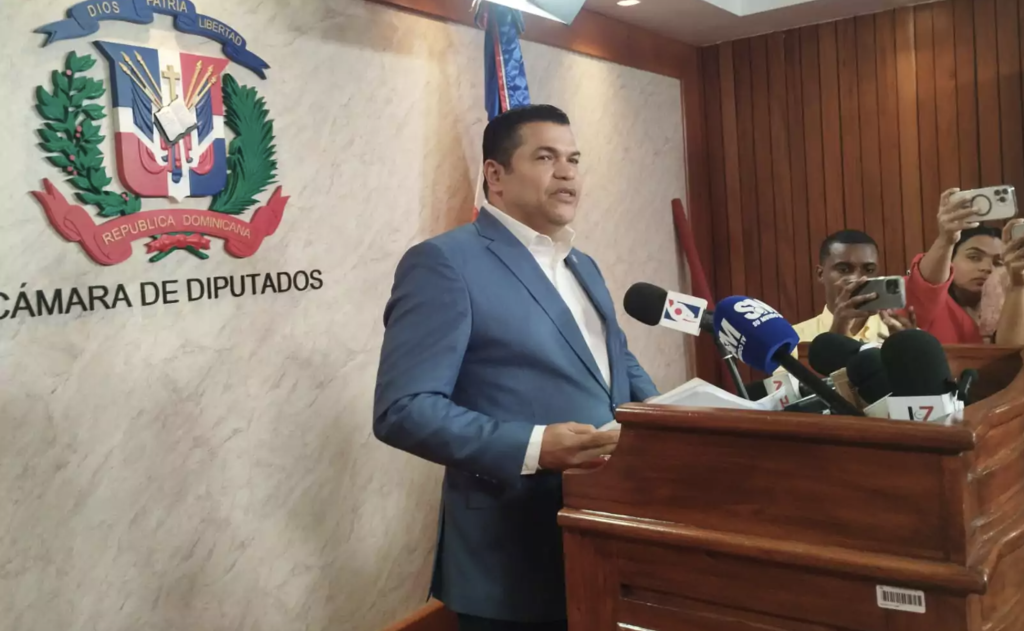
Congressman Tobías Crespo of the Fuerza del Pueblo (FP) party has introduced a bill aimed at regulating artificial intelligence (AI) systems and their applications in the Dominican Republic. The proposed legislation seeks to establish legal safeguards, codes of conduct, appeals processes, and a corresponding sanctions regime for individuals and legal entities.
Crespo explained that the bill aims to ensure the reliability and foundations of AI applications, so that they are developed and used as tools at the service of people, respecting human dignity and personal autonomy. The systems should be designed to function in a way that can be adequately controlled and monitored by humans, be robust in case of problems, and resilient against attempts to alter their use or operation. It seeks to minimize unwanted damage, differentiating between General Use Artificial Intelligence Systems and High-Risk Systems.
The congressman indicated that the bill establishes the creation of the National Council for Artificial Intelligence (CONIA) with the functions of planning, organizing, administering, monitoring and overseeing aspects related to Artificial Intelligence Systems and their proper application. CONIA would be responsible for promoting specialized knowledge and capacities required to implement literacy in the public, private and institutions of society in general, as well as defining and establishing the National Strategic Plan of AI of the Dominican Republic.
The bill proposes to create a special fund to incentivize and promote the design and development of Artificial Intelligence Systems and Applications aimed at improving the quality of education, health, cultural, literary and artistic creations, environmental improvement and any application or system that seeks to guarantee and protect the fundamental rights established in the Constitution and the laws.
The Executive Branch will be empowered to establish tax deductions for micro, small and medium-sized enterprises in the country dedicated to the design and development of Artificial Intelligence systems and applications under the objectives and scope of this law, as well as to foreign companies wishing to invest in the field in the Dominican Republic.
“This new piece establishes the prohibition of the use of AI Systems for Military, Defense or National Security purposes, as well as their use in manipulative practices, exploitation and social control that are harmful and incorrect because they go against the ethical principles and values with respect to human dignity, freedom, equality, democracy and the rule of law and the fundamental rights enshrined in the Constitution, such as the right to non-discrimination, data protection and privacy and the rights of children and adolescents,” he said.
The FP deputy expressed that, in addition, it prohibits manipulation techniques that allow Artificial Intelligence to be used to persuade people to adopt unwanted behaviors or to deceive them, pushing them to make decisions in a way that undermines and harms their autonomy, their decision-making and their ability to choose freely, as well as Biometric Categorization Systems, Citizen Scoring, Unfair Commercial Practices, Subliminal Components, Real-Time Biometric Identification in Public Access Spaces, Detection or Deduction of Emotions, the protection of what is known as the Critical Infrastructure of the State.
“The state must consider in its public policy guidelines the strategic axes that support innovation, respect the freedom of science without undermining the research and development activity on artificial intelligence systems. Without affecting scientific research and development activities on AI systems or models before their introduction into the market or commissioning, nor apply before such systems and models are introduced into the market, with regard to research activity,” the bill indicates, among other points.
Crespo has also submitted bills that will establish regulations on the comprehensive management of waste from electrical and electronic equipment (electronic waste), the general project of Information and Communication Technologies (ICTs), the Bill on Digital Citizenship and Smart Cities, as well as the bill that creates the National Cybersecurity System against Cybercrime, among other initiatives of his authorship that are being studied and debated in the corresponding standing committees in the Chamber of Deputies.
Read more in Spanish:
Noticias SIN
20 February 2025

